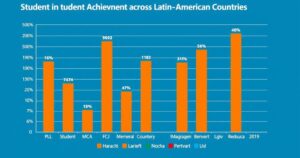Fundraising Disparities in Pennsylvania’s Upcoming Election

In the upcoming Pennsylvania election on November 5, the attorney general race has generated substantial fundraising totals, particularly for Democratic candidate Eugene DePasquale, who raised $3.3 million. His opponent, Republican Dave Sunday, follows with $1.4 million, supported by significant PAC spending. Conversely, the auditor general race has seen Democratic Malcolm Kenyatta raise $491,000 against Republican Tim DeFoor’s $68,000, while in the treasurer race, Democratic Erin McClelland has raised $90,000, trailing behind Republican incumbent Stacy Garrity’s $450,000. The dynamics of fundraising underscore the varying levels of support across these critical statewide offices.
In the lead-up to the crucial November 5 election in Pennsylvania, the fundraising efforts for the state’s attorney general candidates have garnered considerable attention, overshadowing the financial support for the races for auditor general and treasurer. Union contributions and significant donations from high-profile individuals are playing significant roles in the attorney general contest, while the other races have not attracted comparable financial backing. In the hotly contested attorney general race, Democratic candidate Eugene DePasquale has raised approximately $3.3 million, with nearly half of this amount coming from the national Democratic Attorneys General Association. His Republican opponent, Dave Sunday, has reported a lower amount of about $1.4 million but benefits from heavy spending on advertising, particularly through various political action committees (PACs) which are collectively contributing an estimated $12 million on ads supporting his campaign. The auditor general race has seen a significant disparity in fundraising, with Democratic candidate Malcolm Kenyatta raising over $491,000 compared to Republican incumbent Tim DeFoor’s $68,000. Kenyatta has garnered support from unions and other progressive groups, while DeFoor’s contributions are linked to traditional Republican sources. In the treasurer race, Democratic candidate Erin McClelland finds herself at a disadvantage with only $90,000 in fundraising, against Republican incumbent Stacy Garrity’s nearly $450,000. Garrity enjoys a robust support network within her party, contrasting McClelland’s rocky relationship with the party establishment. Overall, while fundraising does not always dictate electoral outcomes, it remains a pivotal factor in these races, particularly for the candidates striving to enhance their visibility and outreach statewide.
The current political landscape in Pennsylvania highlights the significance of campaign financing in three key row office elections: attorney general, auditor general, and treasurer. As these races approach, contrasting fundraising strategies and the influence of unions, interest groups, and wealthy contributors have become evident. The attorney general race stands out with heavy financial backing, particularly from national organizations, whereas the races for auditor general and treasurer have attracted lesser financial resources. Understanding these dynamics is crucial, particularly given past election outcomes where lesser-known candidates have overcome financial disadvantages to achieve victory.
In conclusion, while fundraising totals in Pennsylvania’s upcoming elections indicate varying levels of support across the races for attorney general, auditor general, and treasurer, it is clear that significant financial contributions can enhance a candidate’s visibility and outreach. The attorney general race has attracted the most considerable investments, making it a focal point of interest among voters and political analysts alike. As the election draws nearer, the candidates must capitalize on their resources effectively to connect with their constituents and sway undecided voters.
Original Source: www.spotlightpa.org








